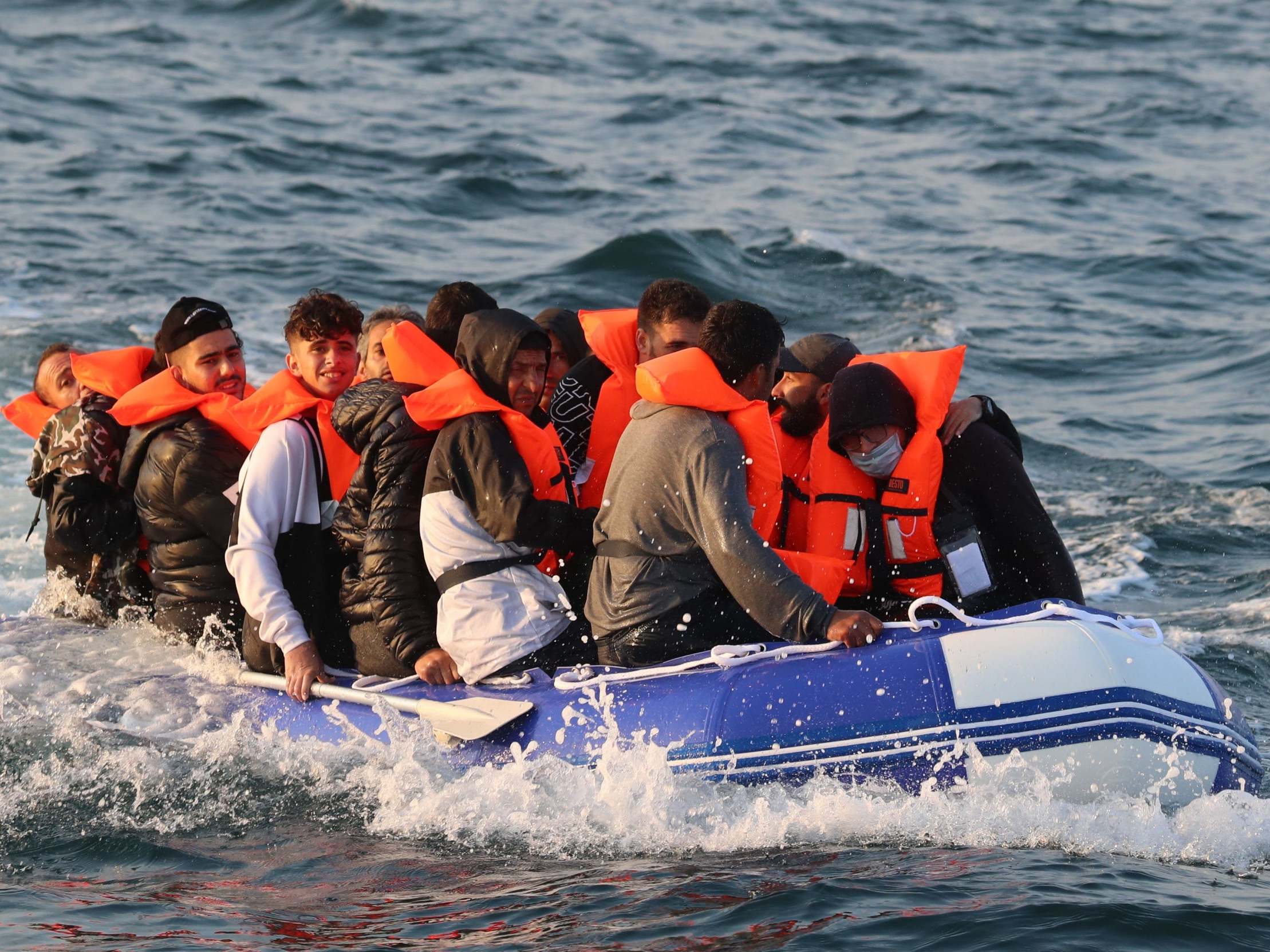Dangerous Channel crossings should prompt the UK to rise to its responsibilities to refugees
Editorial: Boris Johnson’s expression of sympathy for ‘desperate’ people trying to get to the UK rings hollow while his government accepts so few refugees by other routes

The prime minister said in the House of Commons on Wednesday: “I have a great deal of sympathy with those who are so desperate as to put their children in dinghies, or even children’s paddling pools, and try to cross the Channel.” Inevitably, this was followed by a “but”. He claimed that those trying to enter the country in this way were “undermining the legitimate claims of others who would seek asylum in this country”, although he did not explain how. Anyone who has a well-founded fear of persecution is entitled to refugee status in this country.
Unfortunately, Boris Johnson is playing politics with this subject. He knows that there are widespread doubts among the British public as to whether many of those trying to cross the Channel in unsafe small boats are genuine refugees, so he tried to confuse the issue by referring to the “Dublin regulations”, an EU agreement that implies – although it is not categorical – that refugees should seek asylum in the first safe country to which they come. Given that France is a safe country, he and his ministers say, asylum seekers have no justification for crossing to the UK.
Hands apparently washed of moral responsibility, the government can then get on with the business of trying to bribe and cajole the French authorities into policing their beaches on our behalf.
But the law on seeking asylum is not as simple or as convenient (for the British government) as that. Mr Johnson went so far as to say of the “desperate” people with whom he had a great deal of sympathy: “They are breaking the law.” This is not the case. There is nothing to prevent genuine refugees, if they can get to Britain, claiming asylum here. The 1951 Geneva Convention on refugees is silent on the concept of a “safe country”, and the United Nations has held that any attempt to impose conditions of that kind on asylum applications is contrary to the convention.
How would-be refugees get to Britain are practical and moral questions rather than legal ones. One of the reasons more people are trying to cross the Channel in boats is that other routes have been closed or restricted during the coronavirus crisis. Traffic through the Channel Tunnel has been limited, and the UK’s resettlement scheme, by which the British government fulfils its minimal obligations to take a few refugees, has been closed since April.
That means the UK, which already took fewer refugees than any comparable European country, has walked away from its moral obligations. France has three times as many refugees as the UK; Germany eight times as many; and Sweden, with a population one seventh the size of the UK, has twice as many refugees.
It may be that if the UK accepted a more proportionate share of responsibility, it would do little to diminish the desire of desperate people to come here, but it would be the right thing to do, and it would make it easier to agree, with France and the rest of the European Union, a common approach to preventing people from trying to make the dangerous journey.
Nick Thomas-Symonds, the shadow home secretary, said that the government’s approach to Channel crossings had been “defined by a lack of compassion and a lack of competence”. We are unable to disagree.
Join our commenting forum
Join thought-provoking conversations, follow other Independent readers and see their replies
Comments